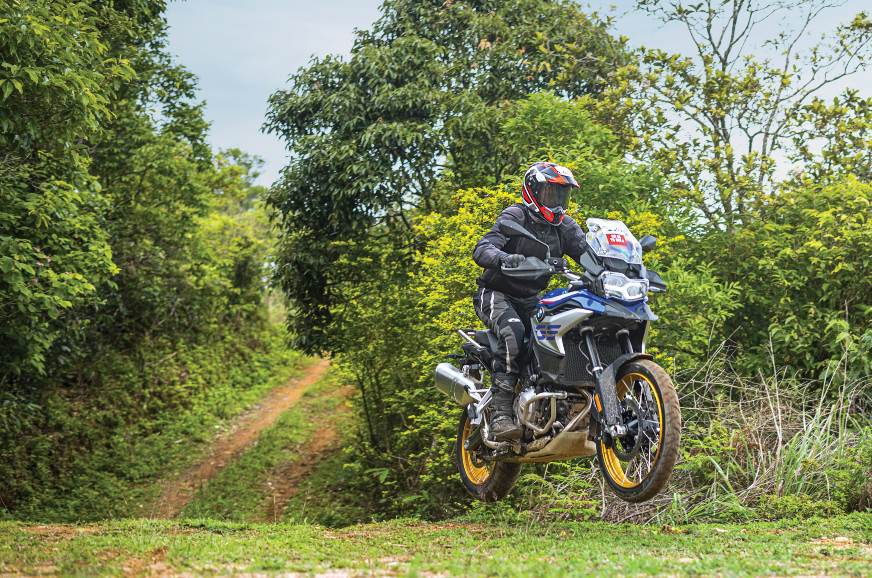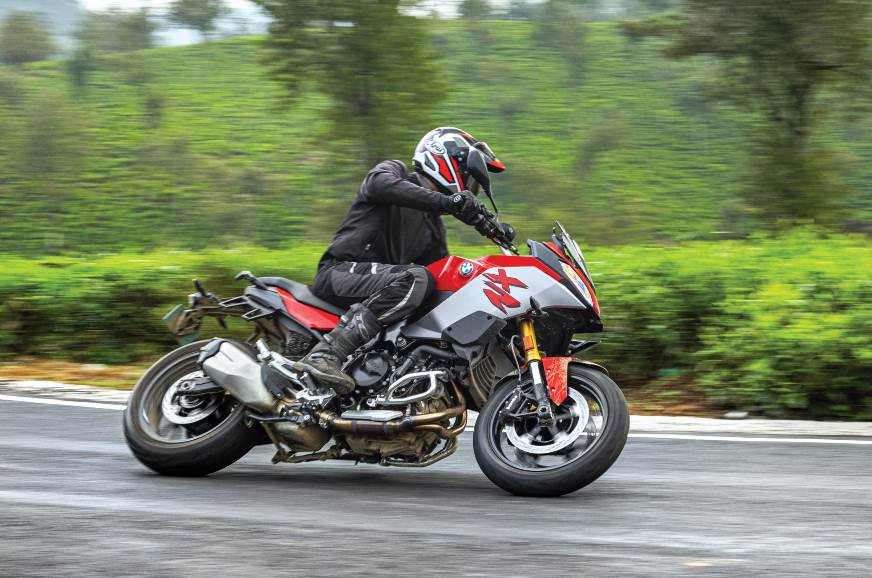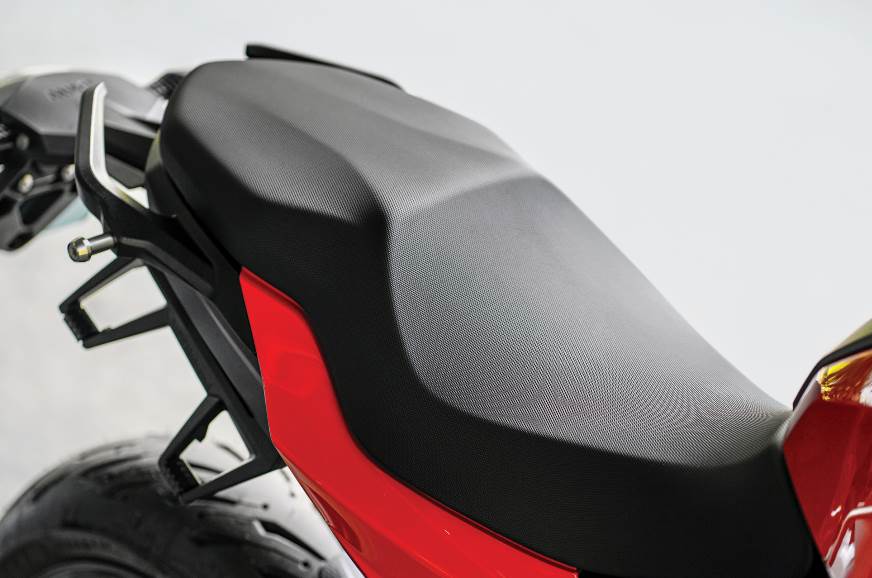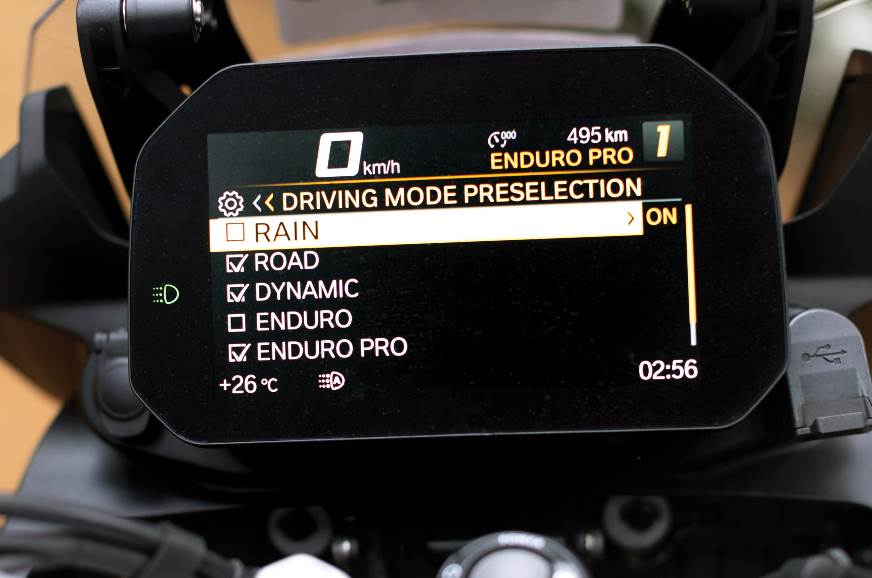BMW has brought back its middleweight tourers, but this time with more features and an incredible price drop.
It is the natural order of things that a BMW motorcycle should be premium, high tech, and thereby, quite expensive. So you really need to sit up and notice when BMW launches new motorcycles that pack a bunch more features than before, but also come with a huge price drop. In fact, the 850 GS and 850 GS Adventure are now roughly Rs 3 lakh cheaper than what they were last priced in 2019. That not only (now) makes them a great deal, but also has every other rival looking silly-overpriced.
No, BMW hasn’t suddenly turned charitable, and the reason this is possible is because the company has finally been able to bring these bikes in from its plant in Thailand. That helps them benefit from the vastly lower import duty, thanks to the Free Trade Agreement between the two countries. All this while, BMW’s bikes have been coming in from Berlin, but now they’ve been able to emulate what Triumph and Ducati have been doing for a few years with the FTA imports. In fact, this aggressive BMW pricing makes one wonder just how fat Ducati and Triumph’s margins actually are… But let’s save that for another day – here’s what it’s like to ride these new Bimmers.
GOD’S OWN COUNTRY
BMW took us all the way to Thekkady in Kerala to sample these bikes. Half of the day was spent on the F 850 GS and the other half on the F 900 XR, although I did manage to steal a bit of time on a GSA off road as well.
The familiarity in these motorcycles was apparent from the moment the engine fired into life, with a similar feel and sound from the 853cc parallel-twin motor. In the GS and GSA, the BS6-compliant motor now produces 95hp at 8,250rpm and 92Nm at 6,250rpm. Those are the same figures as in the international version, but are actually 5hp and 6Nm up from the BS4 bikes that were slightly detuned for our fuel. This engine is made by Loncin, BMW’s Chinese partner, and like before, its 270-degree firing order makes for a nice deep bark, but there are also more clattery valve sounds at low RPM than you’d expect.
Both, the GS and the GS Adventure use this engine in the same state of tune and it’s a nice performer on the road. Throttle response is pretty smooth, and the midrange performance is very enjoyable. Revving it all the way to the top doesn’t really make much sense, and there are some vibrations at higher RPMs, but for the most part, it’s a good fit for these bikes.
The chassis hasn’t changed much either, so you get a 21-inch front wheel, 17-inch rear and heaps of suspension travel. On the road, these bikes have an addictive, impervious feel where you can just rail through any surface without bother. In a country where terrible roads are still widespread, this is a wonderful asset. But in Kerala, we also got to ride on some beautifully smooth and winding roads, and the 850 was happy to play. The non-adjustable front suspension seems well set-up to handle most situations and the electronically adjustable rear shock can be easily controlled via the TFT dash.
Off road, these bikes were even more fun, with good suspension compliance, lots of ground clearance and more than enough power to get you in trouble very quickly if you aren’t careful. The electronic rider aids are great, too – both on and off road. On tarmac, you now have the advantage of lean angle sensitive ABS and traction control, while off-road you can now individually tailor the Enduro Pro mode. All of this used to be part of the optional Pro Riding Modes package that cost about Rs 1 lakh.
BIG VS REALLY BIG
As for choosing between the GS and the GSA, I personally enjoyed riding the GS more because it feels much slimmer, noticeably lighter and more intuitive in general. The downside is that its 15-litre tank is quite restricted for a big ADV, but that’s not the only temptation to consider the GSA.
For just Rs 75,000 more, the GSA brings you a bigger 23-litre tank, tubular engine guards as standard, and a pair of auxiliary lamps. It also looks positively ginormous in comparison, almost as wide as the 1250 GSA which comes with a 30-litre tank. The engorged bodywork will bring wind protection benefits, but also 15 extra kilos, taking the total to 248kg. This excess bulk is otherwise more aesthetic than essential and it’s up to you to decide whether you like the look or not.

Either way, at Rs 12.50 lakh and Rs 13.25 lakh (ex-showroom, India), respectively, these bikes are an amazing deal. You not only get handsome style and envious badge value but they’re also fully loaded, including keyless start, keyless fuel flaps, and the electronic rear shocks. This unexpected offensive from BMW will surely give the competition a lot to think about.
Ultimately, I had just two grievances with these bikes, and both came down to the drivetrain. The first was that the engine was very prone to stalling at low RPM, which was a proper pain off-road. These 850s lack that effortless low down drive and smoothness that makes their bigger, boxer engined brother such a special experience. The second issue is one we’ve complained about before and that’s the hard, heavy shifting gearbox. A bi-directional quickshifter is standard, but it doesn’t work well at low revs and feels jerky unless shifting with a wide open throttle. This was something we experienced aboard the F 900 XR as well in the second part of the day.
ON THE ROAD AGAIN
After an exciting morning of mucking about on some leech-infested trails, it was time to try the new F 900 XR. At first, the XR doesn’t appear to be as juicy a deal as the new 850s, because at Rs 12.30 lakh (ex-showroom, India), it only costs Rs 10,000 less than before. But what BMW has done here is throw a whole lot more features at the bike. The equipment that used to be optional but is now standard includes keyless start and fuel lid, Pro Riding mode package, heated grips, luggage mounting points and an adaptive LED headlamp.

As with the GS and GSA, apart from its new features, the F 900 XR remains a very similar motorcycle to ride. The 895cc motor makes the same 105hp as before and compared with the 850s, the motor feels more responsive, but also seems to have a slightly higher level of vibration.
This bike is listed under the Adventure category on BMW’s website, and it boasts a nice upright riding stance with a good amount of ground clearance. That being said, compared with the 860mm plus seat heights on the GS and GSA, the XR is at a more accessible 825mm. Factor in the 219kg kerb weight and BMW is relying on the XR to be the alternative for riders who find the 850s a bit too tall and heavy.
What those riders will like is that in terms of kit, the XR is right up there with the GS. It has the same 6.5-inch TFT display, a similarly easy two-way adjustable windscreen and the electronically adjustable Sachs rear shock. As with the other two, there are no conventional compression and rebound settings for the shock, but you can select between comfort and Dynamic modes and also set the preload for the additional weight of luggage or a pillion rider.

XR’s hard seat becomes uncomfortable very quickly.
With its 17-inch wheels and Michelin Road 5GT tyres, the XR is a good handler if you point it at a set of corners. Braking performance is quite nice too and with 170mm of suspension travel, you’d expect this to be quite absorptive on our roads, but that’s where the XR falls back. It isn’t uncomfortable per se, but it is firmer than we’d like and you can’t just ride through broken roads in the same carefree manner as you would on the GS. On top of that, the seat isn’t as spacious and it starts to feel painful quite quickly.
Overall, the XR also commands a fairly enticing price, but it was the two GS siblings that were the stars of the day. Best of all, BMW tells us that this isn’t just introductory pricing that will be jacked up in the next few months – as much of the competition tends to do. The company is going on a real offensive here, and based on what we’ve experienced, it won’t be long before they take over the middleweight ADV space if the competition doesn’t react.

























